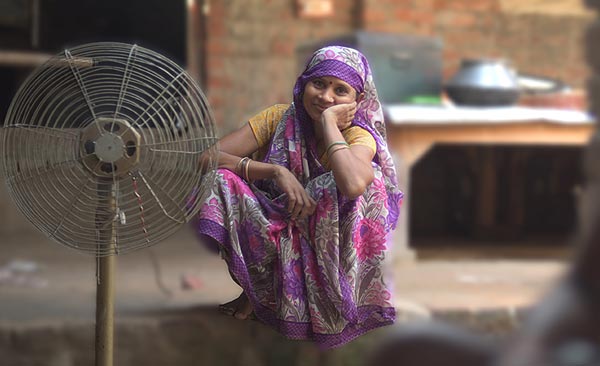About the Event
CEEW Energy Access Dialogues are quarterly forums where researchers and practitioners discuss their ongoing work in energy access, deliberate on its implications, explore possibilities for collaborative work, and review immediate priorities in the energy access space.
At the second edition of the Dialogues, two aspects of electricity access were discussed: the quality of power supply in rural India; and the state of metering, billing, collection, and electricity theft in Uttar Pradesh.
Key Highlights
Session I
- Johannes Urpelainen, Founding Director, Initiative for Sustainable Energy Policy at the Johns Hopkins School of Advanced International Studies led a discussion on ‘The consequences of poor electricity service in rural India.’
- The presentation used data from the ACCESS Survey and the ISEP-SPI 2019 data sets.
- The study attempts to understand the correlation between duration of supply and the probability of appliance ownership. A range of energy services are assessed for this purpose: lighting, ICTs, space cooling, thermal loads, mechanical loads, refrigeration, and cooking. It assesses marginal change in the probability of appliance ownership against duration of supply.
- Ownership of ICTs (mobile, television, etc.) and lighting is not dependent on duration of supply, as the rate of ownership of lighting and ICTs is high. There is a considerable increase in ownership of fans with increased duration of supply. Ownership of cooking appliances and refrigerators is rare, owing primarily to poor purchasing capacity and the high cost of usage.
- Rural households in Uttar Pradesh have high appliance ownership relative to supply; whereas those in Madhya Pradesh, Bihar, and West Bengal have low appliance ownership relative to supply. Poor duration of supply is a constraint for households to move to higher order appliances beyond ICTs and lighting. Although affordability of appliances such as refrigerators and air conditioners will remain a concern even if the duration were to improve.
Session II
- Kanika Balani, Research Analyst, CEEW presented on ‘Metering, billing, collection, and electricity theft – understanding compliance and its drivers in Uttar Pradesh’s electricity sector.’
- This study sheds light on the state of payment compliance and societal attitudes towards the same in Uttar Pradesh. It is based on secondary sources of data, interviews with DISCOM officials, and a survey of 1,800 households from rural and urban areas of the state. The focus is on the relative impacts of 'hard' and 'soft' thefts on utilities’ commercial losses, the key drivers for compliance, and the effect of centralized homogenous policymaking.
- Almost half of all grid-connected rural households in Uttar Pradesh did not have meters. Although, most households were satisfied with the quality of electricity provided to them, 77 per cent (rural) and 40 per cent (urban) of households that were billed didn't trust the bills.
- The level of compliance among those billed is nearly the same in rural and urban areas. Level of education and trust in utility officials were found to be factors influencing prompt payment of bills.
- There was a great degree of heterogeneity among consumers of each of the five utilities in the state. This had not been considered while framing targets and policies. An important finding of the study was that a majority of respondents preferred no punishment or only monetary punishment for those with katiya connections.




